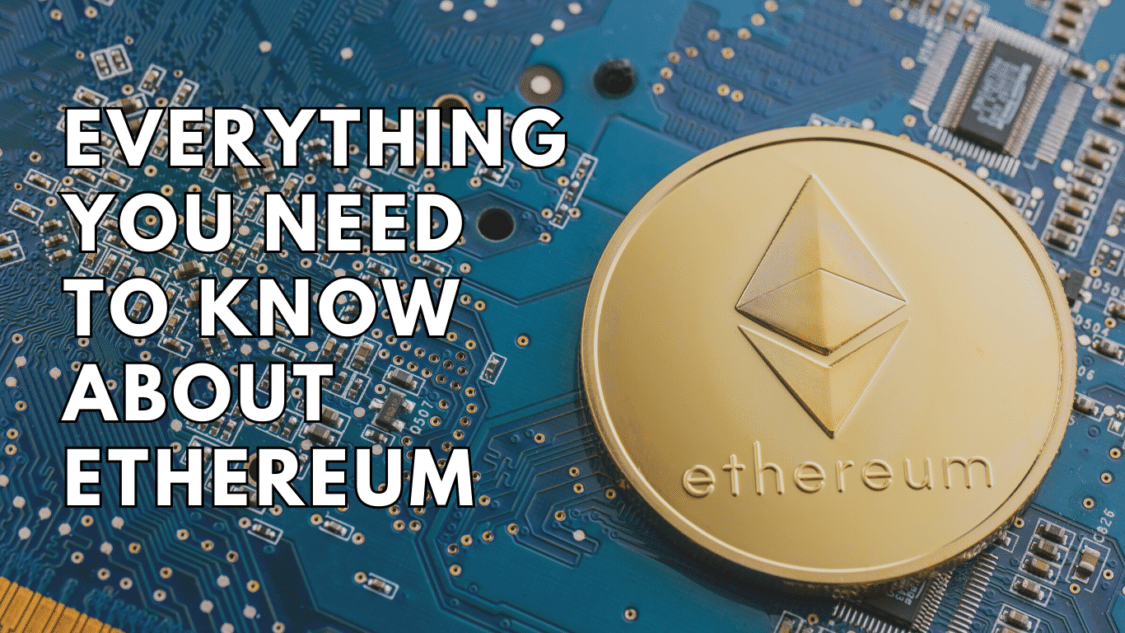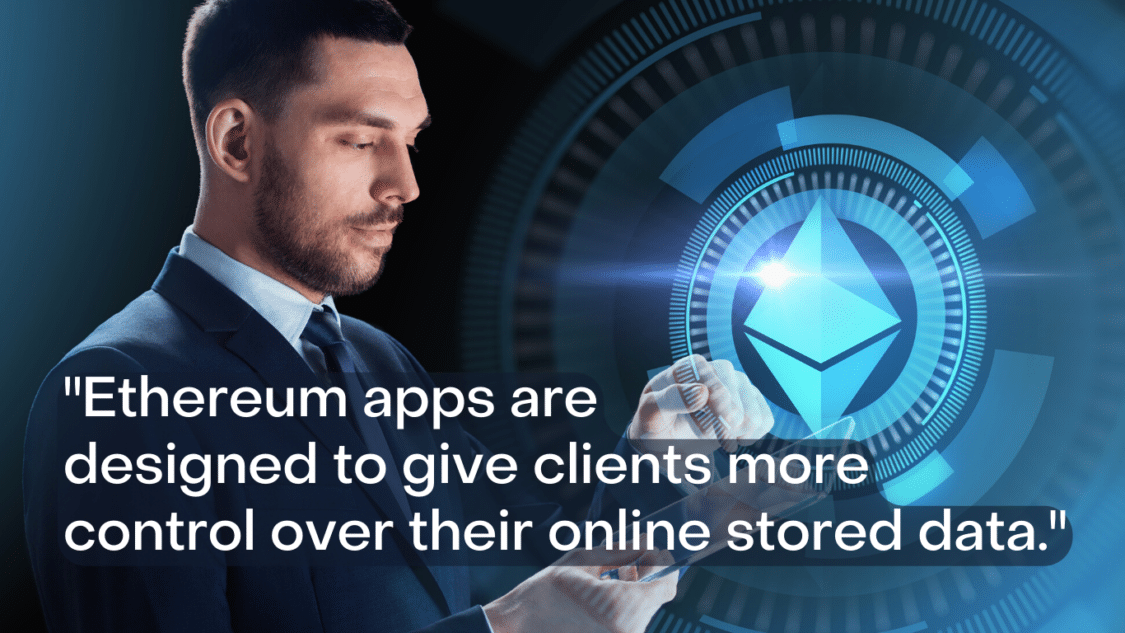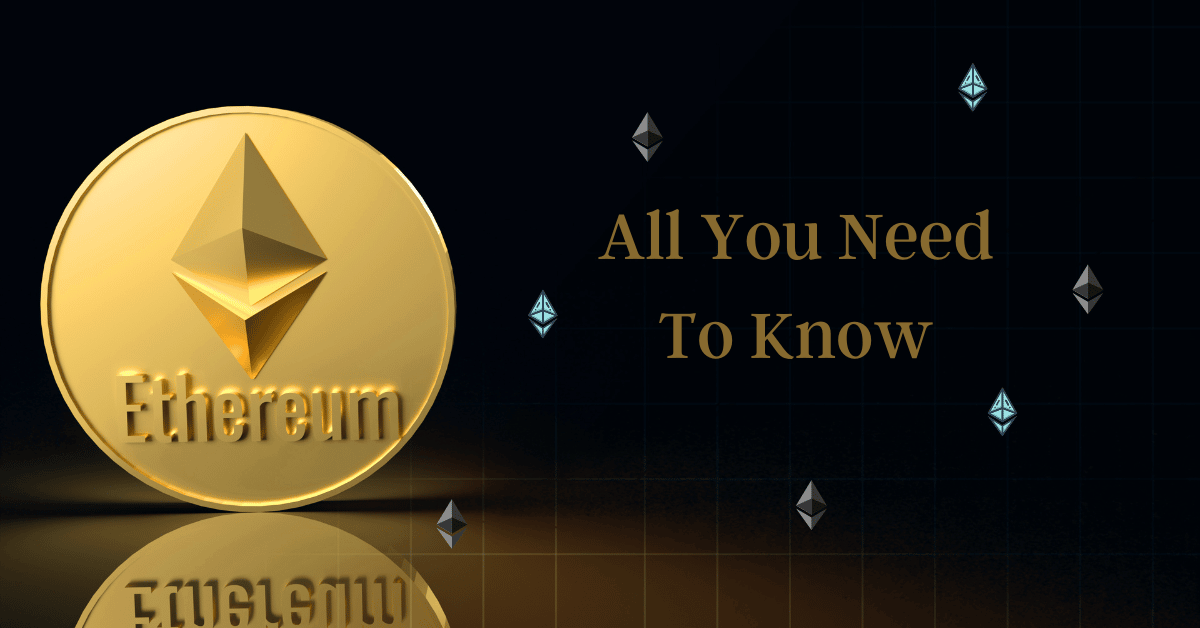
If you’re interested in native cryptocurrency investing, you’ve likely encountered the term “Ethereum.” As one of the most popular and widely used cryptocurrencies, Ethereum has gained significant attention in recent years. But what exactly is Ethereum, and what do you need to know about it to make informed investment decisions?
In this article, we’ll explore 7 powerful insights that cover everything you need to know about Ethereum.
Insight 1: Ethereum Beyond Bitcoin
While Bitcoin is the most well-known native cryptocurrency, Ethereum offers much more than a digital currency. Ethereum is an open-source blockchain platform that enables the development and execution of decentralized applications (dApps) and smart contracts. It serves as the foundation for many applications beyond traditional financial transactions, including decentralized finance (DeFi), non-fungible tokens (NFTs), supply chain management, and more.
Insight 2: Ether (ETH) as the Native Cryptocurrency
The Ethereum network owns Ether (ETH), the platform’s primary fuel for transactions and smart contracts. As an investor, it’s essential to understand the role of Ether within the Ethereum ecosystem and how it differs from Bitcoin or other native cryptocurrencies. Various factors, including demand for dApps, network upgrades, regulatory developments, and market sentiment, influence ether’s value, and market dynamics.
Insight 3: Smart Contracts Revolutionize Industries
One of the key innovations of Ethereum is the idea of smart contracts, which are contracts with predefined conditions that automatically enforce and execute themselves. Smart contracts eliminate intermediaries and enable trustless transactions and agreements, opening up new possibilities in various industries. From financial services and real estate to supply chain management and gaming, smart contracts can revolutionize traditional business models and create new opportunities.
Insight 4: Decentralized Finance (DeFi) on Ethereum
Decentralized Finance, or DeFi, is a rapidly growing sector within the Ethereum ecosystem. DeFi refers to various financial applications built on the Ethereum blockchain, offering open, permissionless, and decentralized alternatives to traditional financial services. DeFi protocols enable different use cases, such as lending, borrowing, yield farming, decentralized exchanges (DEXs), stablecoins, and more. Understanding the basics of DeFi and potential risks and rewards is crucial for investors interested in Ethereum.
Insight 5: Non-Fungible Tokens (NFTs) on Ethereum
Non-Fungible Tokens, or NFTs, are another significant use case of Ethereum. NFTs are digital assets representing ownership of unique items, such as artwork, collectibles, virtual real estate, and more. NFTs leverage Ethereum’s blockchain to provide verifiable ownership, provenance, and transferability of digital assets. NFTs have gained mainstream attention for their potential to disrupt traditional markets and raise questions about ownership rights, value, and sustainability.
Insight 6: Ethereum 2.0 and Upgrades
Ethereum is undergoing a significant upgrade called Ethereum 2.0, which aims to address scalability, security, and sustainability challenges. The promotion will transition Ethereum from a proof-of-work (PoW) to a proof-of-stake (PoS) consensus mechanism, among other changes. Ethereum 2.0 can potentially improve the network’s efficiency, reduce transaction fees, and enhance overall performance. Staying informed about Ethereum’s upgrades and roadmap is essential for understanding the platform’s prospects.
Insight 7: Risks and Considerations
As with any investment, Ethereum comes with risks that investors should be aware of. While Ethereum has shown tremendous potential and growth, it is still a relatively new and volatile market. The price of Ether can be highly volatile, and the cryptocurrency market, in general, can experience significant fluctuations. Additionally, regulatory changes, technological vulnerabilities, and competition from other blockchain platforms are all factors that could impact the value and adoption of Ethereum.
It’s also important to consider the technical complexities of Ethereum, including gas fees, transaction times, and wallet security. Gas fees, which are required to process transactions and make smart contracts on the Ethereum network, can vary greatly depending on network congestion and market demand. High gas fees can impact the affordability and viability of specific transactions or activities on Ethereum.
In conclusion, Ethereum is a powerful blockchain platform with vast potential for various applications beyond just a digital currency.
Understanding the key insights outlined in this article – from its capabilities beyond Bitcoin to smart contracts, DeFi, NFTs, upgrades, and risks – can help investors make informed decisions about Ethereum. However, it’s essential to approach investing in Ethereum or any native cryptocurrency cautiously, considering the risks involved, and conducting thorough research before making any investment decisions.
In summary, Ethereum is a dynamic and evolving ecosystem that offers significant opportunities but comes with inherent risks. As an investor, educating yourself about Ethereum’s unique features, potential use cases, upgrades, and risks is crucial before making any investment decisions. Stay informed, research, and consult with a financial professional if needed to make informed investment choices in the rapidly evolving world of Ethereum and cryptocurrencies.
Ethereum Apps
Ethereum apps are designed to give clients more control over their online stored data. Learning how to buy, store and use the ether token is necessary knowledge to use the apps.
The Ethereum protocol, sometimes called the “world computer,” could offer alternatives to tech giants like Facebook and Google. These platforms are what society is dependent upon. These alternatives would typically give users more authority over their digital data.
These decentralized Ethereum applications dapps are not free of charge. Since there is a limited amount of computing resources on the Ethereum platform, the more activity there is on the platform, the higher the fees. The fees are currently relatively high due to the large number of services working with the Ethereum network.
Ethereum is still a work in progress in this area. To address Ethereum’s underlying scalability issues, the network upgrades of Ethereum 2.0 are gradually taking effect. Theoretically, this will reduce fees while enhancing network security.
As long as you have Ethereum, you have access to the apps.
Now we will talk about how to store your native cryptocurrency ,how to buy it and what can be done with Etherum?
Ethereum Wallet
Before purchasing any sum of Ethereum, you need to arrange a place to put it. This is where an Ethereum wallet comes to play. Many of the Ethereum wallets that are for the purpose of storing value are digital apps. These apps can be accessed like any other typical app through a smartphone or computer.
In addition to holding Ethereum in this wallet, other forms of digital money can also be stored there.
Private or secret keys that can be used to access ether are kept in an individual’s Ethereum wallet. Each key comprises its own lengthy and disoriented string of letters and numbers. The owners of these keys are the only ones who can use them to spend and access their money.
There are Ethereum wallets exclusive for storing private keys. Such as Desktop wallets, Mobile wallets, Hardware wallets, and Paper wallets. Depending on your preference, you can choose which wallet works best for you, whether it be more focused on convenience or security. These two criteria stand as opposites, the more convenient, the lower the security, and the opposite is true as well.
One key aspect to remember when using cryptocurrency wallets is that if you misplace your private key, your ether will be permanently lost. This is when the lack of reliable third parties turns into a disadvantage.

Types of Wallets
While some wallets are more portable and can be used on a smartphone, desktop wallets run on a PC or laptop. Desktop, mobile, and web wallets fall into custodial and noncustodial categories.
Custodial wallets secure your private keys. Sort of like a password for your money. Custodial wallets are a good option for new traders. It comes with its risks being that there is a third-party entity that can bring with it hacks and scams.
On the other hand, in a non-custodial wallet, you are the only one in control of your keys with no third party. Desktop and mobile wallets are known to be less secure because they run on a laptop or smartphone that is connected to the internet. As a result, experts advise storing a small sum of money in them. Hardware and paper wallets can be used to store more.
Hardware wallets are small devices about the size of a thumb that provide a lot of security. These devices can sign and send ether transactions without being online because they are designed for security and have no connection to the internet. This is better suited for storing sizable etherum holdings and is considered the more secure option. Two common hardware wallets are Ledger and Trezor.
Paper wallets are another option to store your money. A paper wallet is a slip of paper you write your private key on and lock in a secure place such as a safety deposit box.
Losing one private key means any ether stored in the wallet is gone for good. The smartest way to keep your private keys is to have multiple copies in different secure locations, emphasis on security. This way, you have a backup option if one is lost or misplaced.
How to Buy Ether?
There are various ways to get your hands on Ethereum tokens. Of course, depending on your location, the options vary from a centralized exchange to a compatible ATM, and lastly, buying in person through a peer-to-peer marketplace.
The easiest route for buying ether is through an online ether exchange. Exchanges such as Coinbase and Kraken allow users to buy ether in dollars or bitcoin. Usually, there is a sign-up process. These exchanges typically adhere to Know-Your-Customer (KYC) laws, which require them to verify a user’s identity before allowing them to purchase native cryptocurrencies through the platform.

It might require an extra step to purchase ether in a native currency other than the dollar. The most widely used native cryptocurrency is bitcoin, and people worldwide are more likely to want to exchange it for their local currency. For example, buying bitcoin at an exchange and exchanging it for ether is a simple way to buy it for Russian rubles.
Nevertheless, the official Ethereum website offers a list of purchasing options according to the user’s country.
ATMs have a few advantages but are less practical because they must be used in person. ATMs take cash payments, whereas exchanges only accept electronic payments (such as credit cards). In contrast to ATMs, exchanges can take several days to transfer users their ether.
Some users are concerned about their privacy and prefer not to use centralized exchanges, which often require identification.
These users always have the option to meet in person to purchase or sell ether, and some locations, including New York and Toronto, frequently host Ethereum meetups. However, this isn’t always an easy alternative in less populated places.
Sites like LocalCryptos link people who want to trade via a different peer-to-peer platform, such as through a bank transfer.
What can be done with etherum?
Once you have etherum, you may use it to fuel decentralized applications, “dapps,” which are identical to the apps we use today but attempt to get away from intermediaries.
A few examples of Decentralized applications include CryptoKitties, PeepEth, and DeFi. CryptoKitties is a game where players can acquire and breed funny-looking virtual cats. The unique feature of Ethereum is that it gives people greater control over their digital collectibles. For instance, unlike in other games, treasures only last as long as the company that produced them. In this case, the digital cat cannot be destroyed.
PeepEth is similar to Twitter. If Twitter finds an account or tweet offensive, it has the right to delete it. PeepEth is unique in that “peeps” placed there cannot be removed, even while administrators maintain the main feed clear of spam and inappropriate posts.
Decentralized finance, often referred to as DeFi, is the name of various financial applications constructed using Ethereum.
Closing Thoughts:
Any questions that you previously had on Ethereum should be pretty straightforward. This article detailed all the Ethereum information we thought to be valuable. We hope you can now decide on the type of wallet to use and where to buy your newest tokens. Happy Trading.




